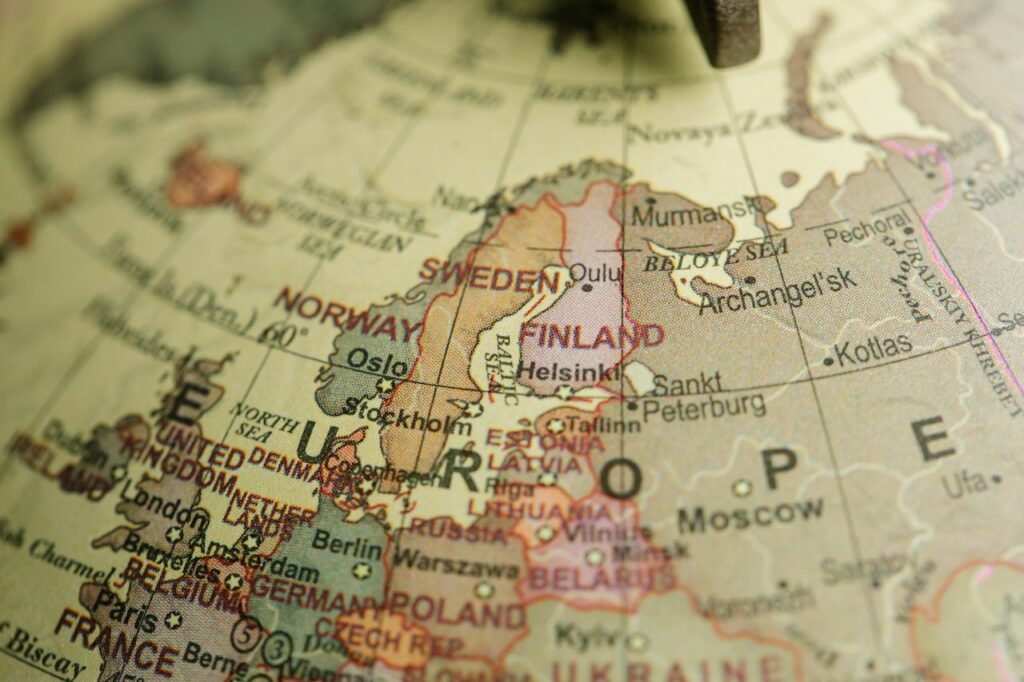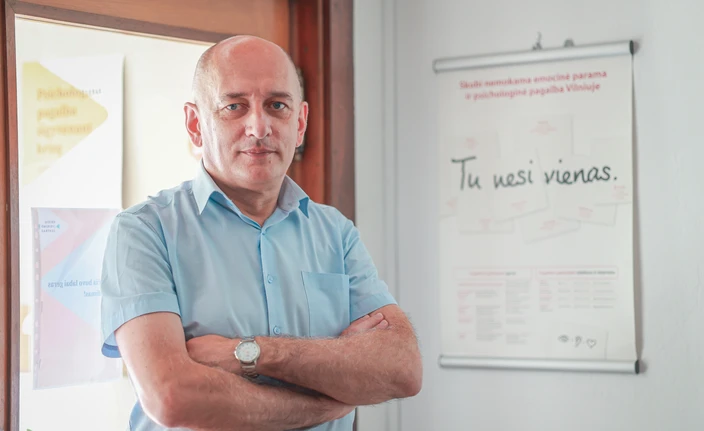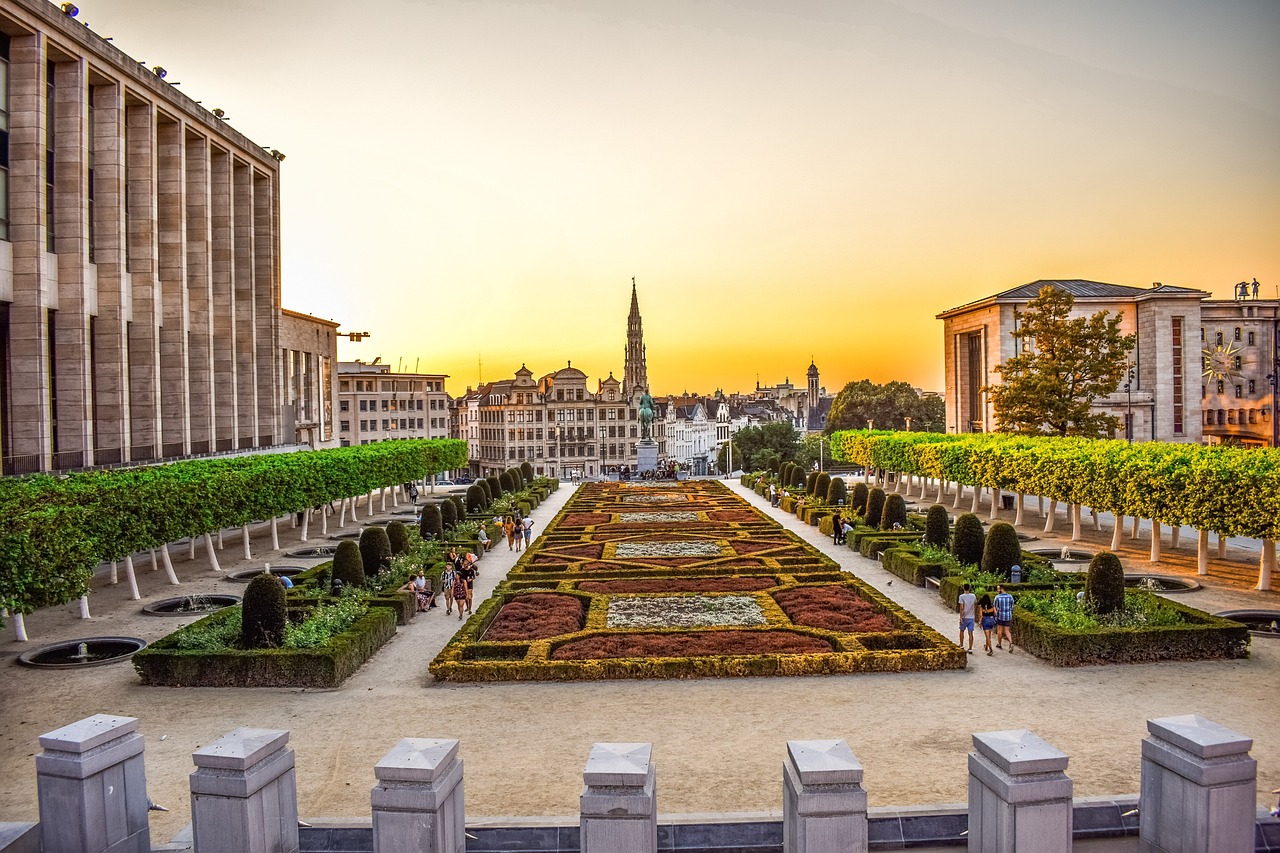Kim Larissa Matschulat and Richard Christian Nicolas Schindler
Politics and the youth – the correlation between these two topics is highly polarizing. With climate change, protests and economical turmoil pointing to impending change on the horizon, many are concerned about the fate of humanity. The world is looking at young people, some with concern, others with great expectations, but all anxious to see what choices they will make to shape our future. This is an investigation of how young people engage with politics and what might be their reasoning behind the choices they make.
A common misconception is that young people are not interested in politics. Unfortunately, statistics appear to back this claim. While the overall turnout in elections has been quite high in recent years, only 46% of voters under 30 have participated in the last national or European election. But does this really mean that youths do not care about politics? And is it really a simple question of disinterest and laziness? In order to find some answers to these questions, we interviewed young voters in Slovakia and Germany who engage actively in politics. While these individuals do not represent their entire age group, their experiences relate to the common struggles of their generation. The purpose of these interviews is to portray how a young person may experience the political landscape of today and what that means for the development of society.
Our interviewees are Adrian C. and Moritz B. Adrian is a 26-year-old from Slovakia and employee of GLOBSEC, a think-tank promoting security, prosperity and sustainability in Europe. Moritz is a 22-year-old Mathematics student from Germany and a member of Amnesty International. Both are white men from centrist middle-class backgrounds. Participants with many similarities were chosen for the purpose of this short article.

STRAYING FROM THE CENTRE
Centrist parties are considered the heart of any democratic society and often viewed as the norm. Looking at the European election of 2019, however, it becomes apparent that young people tend to abandon the centre and thus are becoming increasingly polarized. Voters aged 70 and above have voted centre-right by 27% and centre-left by 20% while those aged under 30 have voted for each by only 16 to 18%. This begs the question whether centrism will hold any appeal for young voters in the future.
MORITZ B.: To me, centrism is inextricably linked to conservatism, therefore it averts change. As I am dissatisfied with the current state of the world, I had to choose something else. Also, centrism promotes a conformative lifestyle, which doesn’t agree with me. I don’t see myself being tied down in the future. I think politics should be made according to what is most reasonable, not what is most conformative.
ADRIAN C.: As a centrist, I believe in a consensual approach in conducting politics, where all sides are listened to, carefully considered, and the most pragmatic and rational policy is applied in a given context-sensitive issue. Being a centrist grants me the possibility to greatly manoeuvre on both sides of the left-right continuum. When observing politics, my personal view remains open-minded and allows me to take a step back and analyse the impact of a policy on the societal fabric and the economy, which can be both beneficial and harmful, if done by considering only one of the left-right perspectives. I thus find extreme adherence towards one side of the coin limiting and not applicable to the ever-changing and complicated political setting of today’s world.
PLAYERS AND WATCHERS
While undoubtedly important, voting is not the only way to participate in politics. This is where researchers come to a crossroad: Despite the low turnover, 85% of youths discuss politics with their friends and family while 87% have engaged in at least one political or civic activity. This might indicate that they prefer active participation in politics over plainly supporting a party or a single lawmaker.
MORITZ B.: Other than participating in elections and reading the news, I let myself gravitate to what is most interesting to me. I believe that the most important thing about political activism is being informed. I see myself mostly as a distributor of information. I feel like in leftism, information is more accessible and the flow of distribution is less stagnant than in centrist parties. For example, my home town is very conservative and it’s hard to talk politics with the people there because they tend to get very emotional and worked up. I find their lack of rationality prevents any meaningful exchange from happening. Conservatives make themselves known not by pushing their politics but most often by holding on to traditionalist beliefs in everyday life. They do everything as it is „supposed to be“ done, from choosing a news source to how their lawns should look. I find this type of mindset very restrictive.
ADRIAN C.: My engagement with politics is predominantly through social media and news channels. Previously, I had been observing both mainstream and dissident voices of the political spectrum because I did not want to fall into a rigid social media cluster or ‘bubble’. However, staying up to date with what is happening on both sides is almost impossible due to natural time constraints. In a nutshell, my attempts to engage with politics are detached from my own feelings and rather aim to perceive reality as it is – raw and stripped off its biased connotations. I must admit, it is not always possible though.
WHAT WE HAVE, WHAT WE WANT AND WHAT WE DESERVE
It seems to be not disinterest but the stagnation of bureaucracy that keeps the youth from taking a part in politics. It is hard to keep up to date with the complex decision-making progress which most governments operate under and even harder to form a precise opinion yourself. There seems to be a sense of isolation that prevents young people from treating politics as a part of their lives through which they can shape society. But what has led to this kind of vexation?
MORITZ B.: Whether you look at social media or at people protesting in the streets, there’s always a hateful atmosphere. This behaviour is discouraging and causes distrust. That’s why I want politicians to fix this poor way of communicating. We need more spaces where open conversations can happen, especially about polarizing and urgent topics. For example, when looking at the discourse over climate change, you’ll find that politicians – specifically centrists, conservatives, and others on the right – are withholding important scientific information from the public. This shows the worrying consequences which a stagnant flow of information can have. Politicians should be forced into taking accountability for their past mistakes and communicate with the public more clearly.
ADRIAN C.: Leading politicians should in my opinion have natural charisma and lead by an example. The constellation of political figures that are portrayed in the media serves as a mirror that reflects what kind of a mentality is dominant in a given state. If the observers hear only about corruption and incompetence, it conveys a message that this is how it is done in our country and leads to a self-fulfilling prophecy. I am of the opinion that leading politicians must be technocrats, adhere to meritocracy and have high self-reflection to not fall prey to egocentrism.

UNIVERSITIES – A PLACE OF MENTAL DEVELOPMENT OR JUST A LECTURE HALL?
Today, more people than ever attend universities. These institutions have always played a role in how the next generation of politicians is formed. It is hard to say whether the ever-growing number of academics is beneficial in that sense but this development has already influenced the approach young people have to established institutions.
MORITZ B.: I’m interested in university politics because I want to take an active part in shaping the institutions that contribute to my everyday life. Uni is a place for self-education and personal growth. It should present students with platforms that teach them responsibility for themselves, others, the environment, etc. Universities could have a lot of influence on how people’s opinions develop, but they don’t really make use of that. Instead, they keep students’ minds busy with exams and tight deadlines. That way, we don’t have much time left to think for ourselves, grow up and develop our viewpoints.
ADRIAN C.: Institutions are the cornerstone of a successful democratic state and must be built on both formal and informal rules. Formal rules are those that are written on paper. Informal rules are unwritten customs that reflect the degree of adherence to formal rules. If there is a gap between these two, formal rules do not work as they should. This represents a problem in post-communist states such as Slovakia, where formal rules were re-written and changed overnight while informal rules remained unchanged, rendering formal rules ineffective. Institutions should therefore also play a significant role in rewiring the mentality of the people to make a strong connection between formal and informal rules.
CONCLUSION
Put in the context of statistics based on recent elections and surveys, these interviews are somehow both hopeful and disheartening. Politics are no longer a question of taste and personal opinion. Young people are very concerned about the environment, social justice and general ethical behaviour. Traditional politics may not hold up to these high standards, which is why the youth gravitates away from centrism or even politics in general. Rigid socio-political and institutional structures are still in place which makes new voters feel unheard and like they are not meant to participate in the first place. However, this demographic will only grow stronger in numbers in the future. The last election to the European Parliament has shown a „record turnout driven by young people.“ This should serve as a wake-up call to politicians, university deans and older generations in general. Soon, deceiving voters and out legislations will no longer be enough to secure their political positions. Whoever caters to the needs of these new voters could secure their support and come out on top in the next local election. The more widely this potential is realised, the easier it will be for young people to actively shape their future. This will bring new ideas to the table and could potentially change the political landscape forever. Not only do young people deserve to be included, to voice their concerns and have those voices heard, but they also have the power to bring change – because young people are the future.

This article is part of the International Journalism Lab initiated by Media4Change. The laboratory is part of the project “Digital MIL Lab in Youth Work”. The project is financed under the Erasmus+ program of the European Union.
The authors of the project articles do not coordinate the topics and content of the articles with the sponsors of the project.


